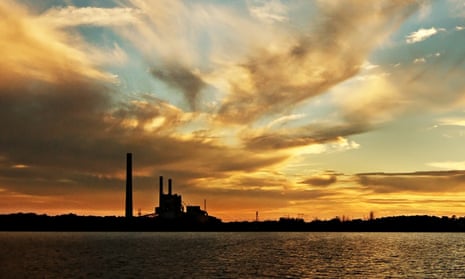Australia’s big energy users aren’t confident national cabinet can pull a rabbit out of its hat when it meets on Friday to discuss a crucial deal to reduce gas and electricity prices.
They’ve been disappointed before – for about a decade, some say.
They certainly weren’t expecting much from Thursday’s gathering of energy ministers in Brisbane. And just as well.
One participant said energy ministers barely mentioned the price caps for gas and coal. Instead, their focus remained on the medium-to long-term challenges, such as securing agreement on a new capacity investment scheme to propel the take up of renewable-plus storage.
Ahead of Friday’s meeting, speculation still remains about whether the Albanese government can implement a price cap for black coal, with $125/tonne the likely target.
Some have heard $8 to $12/gigajoule for gas being muttered on the sidelines, although those closer to the premiers’ offices say $12 to $14/gj was more on the money.
Big energy consumers have become inured to governments letting them down and they need some convincing that the prime minister, Anthony Albanese, and premiers will secure a meaningful reduction in their gas and electricity prices.
One reason is they believe their appeals have been ignored for years, despite many pointing to their supposed political clout in terms of revenue and manufacturing jobs, many of them unionised. For instance, more than a decade ago, they warned state and federal governments against linking east coast gas networks to the global market. Instead of paying $2 to 3/gj, the price more than tripled.
Lower coal and gas prices will help lower electricity bills because those fuels often set the wholesale power price.
Russia’s invasion of Ukraine in February and the subsequent scramble to find alternatives to Russian gas, sent global and therefore eastern Australian spot gas prices, soaring. Western Australia, with its reservation of 15% of gas for domestic use (much-maligned by the gas industry at the time as an investment killer), is sitting relatively pretty with third-quarter gas prices of under $6/gj.
Compare that with the 11-year gas deal secured between Santos and Brickworks, that the AFR reported as “about $12/gj”. Or rather, the many deals being offered at $30/gj or more by the big gas producers to companies that dare not go public without harming the confidence of shareholders or customers.
Qenos has been one company to speak out, telling the AFR its energy costs were set to double next year. Tomago, whose main power contract runs until the end of 2028, has long spoken out the reliability of the grid and the lack of a coherent energy plan.
One person at a big energy consumers lobby group said, “we’re in a terrible situation”.
“You watch, there’ll be a couple of deals done, such as Brickworks’, that mask the reality facing large companies.”
after newsletter promotion
More than a dozen of them co-signed a letter to the federal resources minister, Madeleine King, when she was a few months into her job, pleading for help. They secured a meeting lasting a bit more than an hour, telling the WA-based minister that contracts being offered were “just unsustainable”.
Some of the struggling large energy consumers have been providing confidential briefings to the market watchdog, the ACCC.
Little has improved, however, which is why companies are wary of getting their hopes up about Friday’s meeting.
“The prices are just absolutely outrageous”, one source said.
Resistance by the states, particularly from Queensland and New South Wales, to the price caps could limit Albanese’s options.
Queensland has been demanding compensation for any losses to royalties. NSW’s energy minister, Matt Kean, said on Thursday that his state was happy to forego compensation but clouded the message somewhat by saying NSW expected financial assistance for those affected by any changes.
One person who attended Thursday’s gathering said those state governments should be reminded that any success in lowering prices would benefit their businesses and households. That benefit should be weighed against losses to budgets or other disruption.
But beyond any price cap lie some serious challenges to the energy sector.
Aside from dwindling gas supplies from fields such as Bass Strait, the necessary investments in new electricity generation and transmission are going to cost many billions of dollars.
Payments of $200,000 a kilometre to farmers in NSW to smooth the construction of new power lines will be passed on to consumers, small and large, for instance.
With bills like that adding up all over the country, businesses are increasingly wary about promises of lower energy costs. They’ve been waiting for that magic for a long time.

Comments (…)
Sign in or create your Guardian account to join the discussion